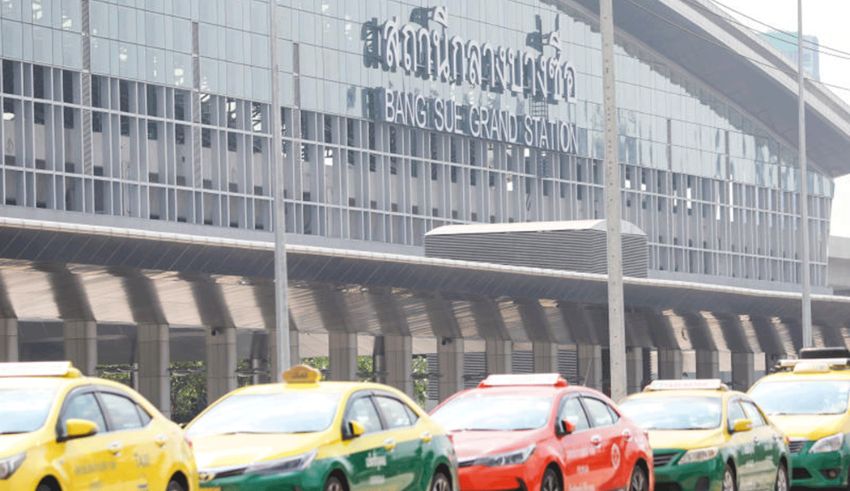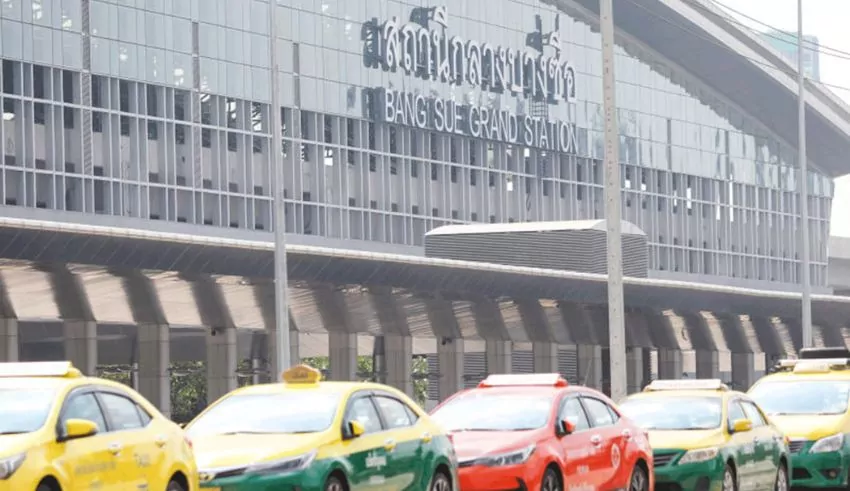

(C) Bangkok Post
Represented by the Thai Public Taxi Association, cabbies across the country want Transport Minister Suriya Juangroongruangkit to offer them an incentive package to make it easier for them to switch to electric vehicles.
According to Sadit Jaitiang, the association chairman, promoting the use of EVs will help reduce carbon emissions and dust pollution. Members would highlight the need for incentives before the minister when they meet next Friday to discuss the well-being of cabbies, he added.
Shifting to EVs without incentives would be a financial burden for scores of Thai drivers, who suffered from a lack of business during the COVID-19 pandemic and are just getting back on their feet financially, Sadit stressed.
The association seeks tax cuts and subsidies, including a sizeable 300,000 baht ($8,385) subsidy for each EV unit. It has already revealed its preference for 90- and 120-KW models and suggested the SME Development Bank help taxi drivers with low-interest loans.
Some 20,000 taxi cabs across Thailand would soon complete their 12-year operational lifespan and therefore, require replacing – ideally with EVs, Sadit said. About 10,000 units will be necessary during the initial phase of the replacement, he added.
Other issues to be discussed include a roadmap to allow cabbies to register with ride-hailing apps and the appointment of a committee to consider new fare rates. Also, the construction of a car park for taxis at Suvarnabhumi Airport was approved in 2019 but is yet to begin.
In the past few months, Bangkok and Thailand as a whole have been making headlines for their dangerous levels of air pollution. While the capital doesn’t usually get the worst of the contamination, the problem is big nationwide.
Earlier in May, the northern city of Chiang Mai grabbed the spotlight for having the worst air quality in the world, as measured by IQAir. A study by Harvard University and King Mongkut’s Institute of Technology has blamed air pollution for 49,000 deaths across Thailand in 2018.
Meanwhile, the impact on the Gross Domestic Product is staggering, with health concerns stemming from the air pollution costing the country an estimated $95 billion or 6.6% of its GDP. All of this is to say contamination of the environment is a grave issue in Thailand.
Indeed, it is, and it marks a milestone in medical research as it transpired that doctors in China successfully transplanted…
Many fans and industry professionals saw Prithviraj Sukumaran's L2 Empuraan movie release on Thursday as a mixed success that gained…
Filipina teenager Alexandra Eala, 19 year old girl has achieved one of the biggest milestones in WTA season by defeating…
After waiting for a solid six years, Marvel Studios has divulged its next Avengers movie—Avengers: Doomsday. And the cast is…
Through software update Nothing OS 3.1 the company improves functionality of Phone (3a) and Phone (3a) Pro models. Global service…
China's electric vehicle (EV) giant BYD has officially taken over the global EV market, with a whopping revenue of 777…
This website uses cookies.
Read More